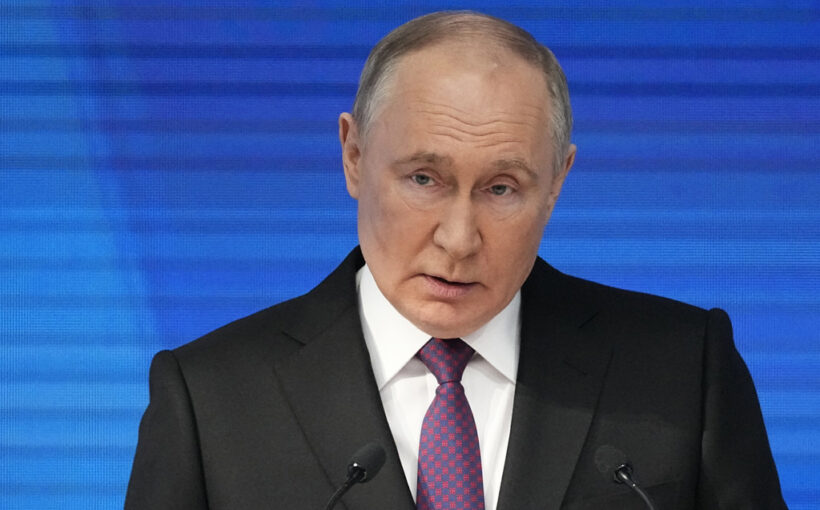German Defense Minister Boris Pistorius shrugged off Russian President Vladimir Putin’s threat of retaliation should Western allies allow Ukraine to use their long-range missiles to strike targets inside Russia.
“What the U.K. and U.S. agree with each other is not for me to judge. It’s up to those who supplied these weapons to decide. International law allows that,” Pistorius said Friday afternoon.
“And Putin’s threats are Putin’s threats, that’s all that needs to be said. He threatens whenever he likes and whenever he sees fit,” he added.
The Russian leader delivered an explicit message Thursday night to Ukraine’s Western partners, warning them against letting Kyiv use donated long-range missiles to strike deep into Russia.
“This will mean that NATO countries, the United States, and European countries are fighting Russia,” he said, ahead of a key meeting between U.S. President Joe Biden and U.K. Prime Minister Keir Starmer, at which Washington and London are expected to take steps toward letting Kyiv use the missiles against Russia.
Pistorius’s apparent dismissal of the Russian threat could conceivably open up Germany to accusations of hypocrisy.
Germany — unlike the U.S., U.K. and France — has refused to send Ukraine its long-range Taurus missiles, with some leaders arguing that such a move could lead to war with Russia.
“That is a line that I — as chancellor — do not want to cross,” German Chancellor Olaf Scholz said earlier this year regarding providing Ukraine with Taurus missiles.
Scholz has repeatedly depicted himself as a leader who can provide aid to Ukraine without crossing lines that would lead to a wider war. Politicians within his own center-left Social Democratic Party (SPD) — the same party as Pistorius — have referred to him as a “peace chancellor” for this approach.
The U.S., Britain and France, meanwhile, have sent long-range ATACMS, Storm Shadows and SCALPs respectively, but with some restrictions on their use.


